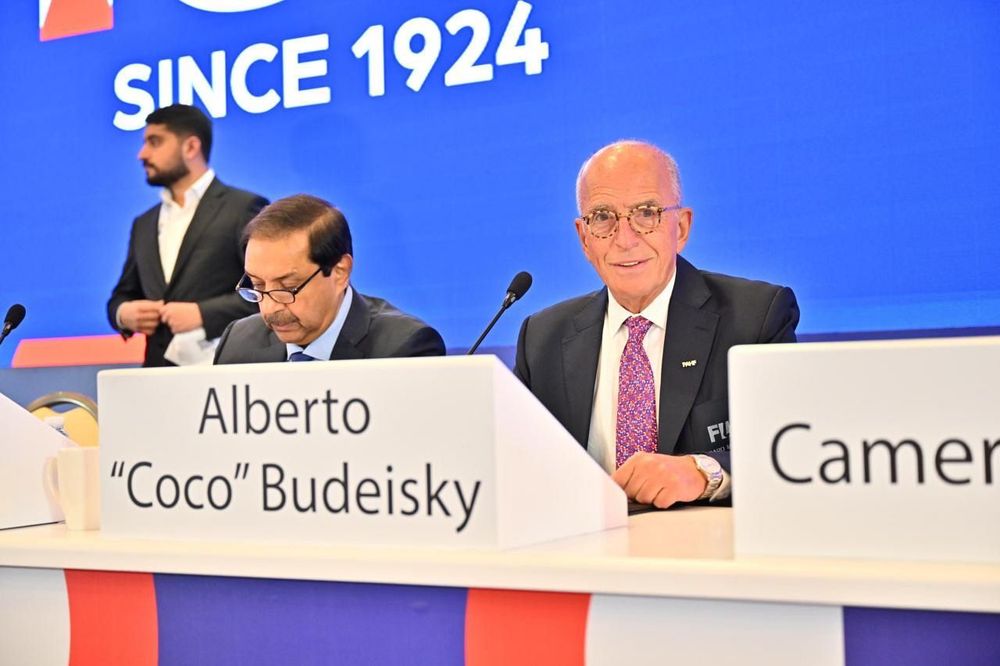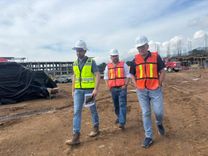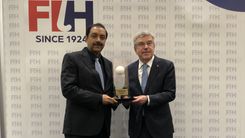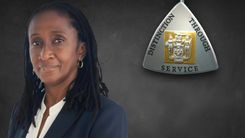After a presidential term, the evaluations begin. The numbers, the statistics, the charts. What we often call the “hard” side of any assessment. But what about the “soft” side? What do we do with everything that can’t be measured but often carries much greater value? How do we explain the legacy—sometimes intangible—left by those who lead? Alberto “Coco” Budeisky spent 12 years as President of the Pan American Hockey Federation. It wasn’t simply a mix of good and bad moments. It was a journey that reshaped the course of hockey across the continent—and reshaped Coco himself, forever.
Leading in the Americas is an enormous challenge. The social and economic gaps between countries are overwhelming. Even within a single country, two completely different realities coexist. Coco is Argentine; his life unfolded and continues in his beloved Quilmes. A city that can be lived in two ways: in comfort or in poverty. “Without a doubt, coming from Argentina helped me understand these differences. I visited countries where the needs of young athletes were very similar to those in my hometown, where I was born, lived, and will likely die. A third-world city with limited economic resources, like so many places in Latin America,” he explained.
With that background, he understood that reaching the highest role in the Pan American Federation came with a clear purpose: “To bring hockey to places where the sport wasn’t developed,” because in the end, sport saves; it is a tool. Along the way, he found successes and failures, but always the conviction to try to plant hockey—stick and ball—in every region. In some places, that effort came with deep emotional weight.
“For the United Nations, Haiti is the poorest nation in the world. Six years ago, I traveled there with the International Olympic Committee. After a hurricane and an earthquake destroyed the facilities of their Sports Center, the IOC decided to invest in building an Olympic Park with spaces for multiple activities. We sent equipment, resources, and a Canadian coach who could guide the team. I attended the opening. I saw with my own eyes young people and PE teachers traveling four, five, even six hours on precarious buses to be there. Talking to them, hearing their stories, seeing the photos of the hockey sticks they crafted themselves with whatever they had—because there was nothing… (he pauses and breathes). I cried. So many people waste what they have, and they desperately needed it. Later, the program couldn’t be sustained because the leaders assigned to hockey were not suitable. They had no intention of developing it,” he recalled.
But there is one case that reflects all that effort: Guatemala. During his presidency, the country grew from 40 players to a league of eight teams—men, women, and youth. Soon, they will inaugurate a complex with two fields (one water-based and one sand-based), thanks to an agreement with a university and land provided by the government. Results like these made everything worthwhile.
Coco also has the humility to make honest self-criticism. He knows and acknowledges that time was not enough to achieve everything. “I would have liked every Federation to have a structure of at least two or three people and not operate as a one-person effort.” Once again, the same objective that guided his mind and soul for 12 years appears: bringing hockey where it didn’t exist. And that required a plan—one to be executed by capable people.
The seed has been planted. Despite being encouraged to continue because of his achievements and results, Budeisky understands that now is the time to step aside: “I believe it’s necessary to make room for something new. We need people who are truly open-minded. There were people who didn’t accept, for example, LGBTQ+ tournaments or the ID Games for athletes with different disabilities. We have a moral obligation to support society.”
When asked to define these twelve seasons carrying the responsibility of growing hockey in the Americas, Coco Budeisky said: “My time here was a beautiful experience. For me, it will always feel like another child. We worked hard, but there is still more to be done. It was an incredibly important part of my life.”
Today, those who back in 1992 thought that the innovative—and slightly crazy—idea proposed by that young man around the club’s small table, that matches should be officiated by impartial umpires, surely understand that this was the moment when THE LEADER was born. The one for whom hockey was—always—running through his mind and his soul.




